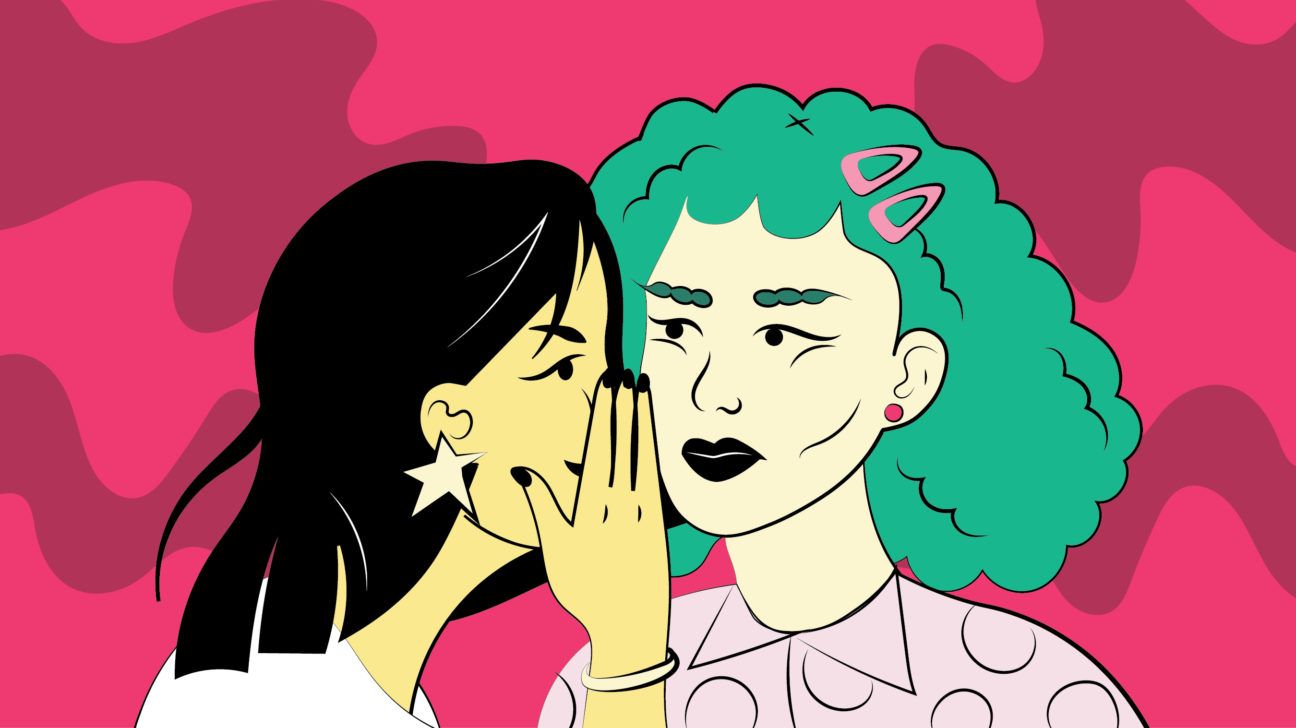We include products we think are useful for our readers. If you buy through links on this page, we may earn a small commission. Here’s our process.
Greatist only shows you brands and products that we stand behind.
Our team thoroughly researches and evaluates the recommendations we make on our site. To establish that the product manufacturers addressed safety and efficacy standards, we:- Evaluate ingredients and composition: Do they have the potential to cause harm?
- Fact-check all health claims: Do they align with the current body of scientific evidence?
- Assess the brand: Does it operate with integrity and adhere to industry best practices?
As the old saying goes, keep your friends close and your enemies closer, because that drama can be fuel for creativity. But there’s a fine line between watching “Gossip Girl” and living out the plot.
Sure, watching seasons of Serena and Blair clapbacks or reading viral articles about friends unwittingly taken for a ride thrills us and gives us life at times. But when they happen IRL, events like these can have a genuinely detrimental effect.
Not everyone we have fun with should be considered a friend.
One way to look at it? Ask yourself if they’re bringing the benefits — in the long term.
“Friendships [have] been shown to be good for our health and mental well-being,” says Hilda Burke, psychotherapist, couples counselor, and author of The Phone Addiction Workbook. Research shows that interacting with friends can make us feel less stressed, boost our confidence, make us feel supported, and even improve our heart health.
But if nights out often start on a high note but end with negatives like belittling, jealousy, competitiveness, and lack of support, it’s time to opt out. Just as good friends can improve your heart health, research indicates bad relationships have a negative effect.
Life’s too short to put up with that sh*t, and it’s not OK to feel like you’re constantly on the receiving end of someone else’s negativity.
To help protect your mental (and physical) health, do yourself a favor: Assess exactly who you do and don’t need, both IRL and online. It takes just two simple steps.
Before you start ghosting and getting click-happy with the “unfriend” button, it’s important to differentiate between occasional clashes of personalities and a genuinely toxic relationship, Burke notes.
“Some friendships can be, overall, very healthy. But there [will be] elements — maybe competitiveness in certain areas or points we don’t agree on — which can be quite triggering,” she explains. “Sometimes we think, ‘That happened, so it’s toxic.’ But maybe that’s [just] 1 percent of interactions — and broadly, it’s a supportive and nurturing friendship.”
Counselor and bibliotherapist Bijal Shah adds that it’s important to develop boundaries around what you will and won’t accept from a friend and recognize when those boundaries are being pushed.
“If boundaries are not being respected, then it’s time to walk away,” she says.
As with any relationship, however, it takes two to tango.
“[So] you also have to think, ‘What is my part?’” says Burke. “Looking at the friendship and questioning whether it’s actually toxic rather than just projecting it all on the other person… provides us with the opportunity for learning and growth.”
Once you’re confident that someone negative in your life needs the old heave-ho, be brave and take action. Tempting as it might be to simply ignore that person, there are better ways to break it off.
“If you’re not comfortable with confrontation, a letter is always good and gives them time to think,” Shah suggests. “If they’re open to discussing it… you can talk about your needs and how they can help meet them in that relationship.”
But if the dialogue turns sour and they become emotionally or verbally abusive, get out.
“It’s because they are unable to respect [your] boundaries — at which point it’s better to cut contact,” Shah adds.
Burke also offers some reassurance: “Often what stops people from ending an [unhealthy] friendship is that they’re afraid of the fallout.” Put yourself first and make a list of the ways the person’s behavior is affecting your well-being.
“Remind yourself of your goal and that your emotional well-being is more important than this friendship,” Burke says.
We’ve all heard the saying “quality over quantity,” and when it comes to friends, anthropologist Robin Dunbar suggests that might be the case.
His research indicates that our brains can maintain relationships with about 150 people at a time and, among those, only five “best” friends. Beyond that, you’re merely matching names to faces.
Look at it that way and you’ll realize there’s no point in wasting any of that precious friendship quota on people who don’t deserve you.
Chantelle Pattemore is a writer and editor based in London, UK. She focuses on lifestyle, travel, food, health, and fitness.


